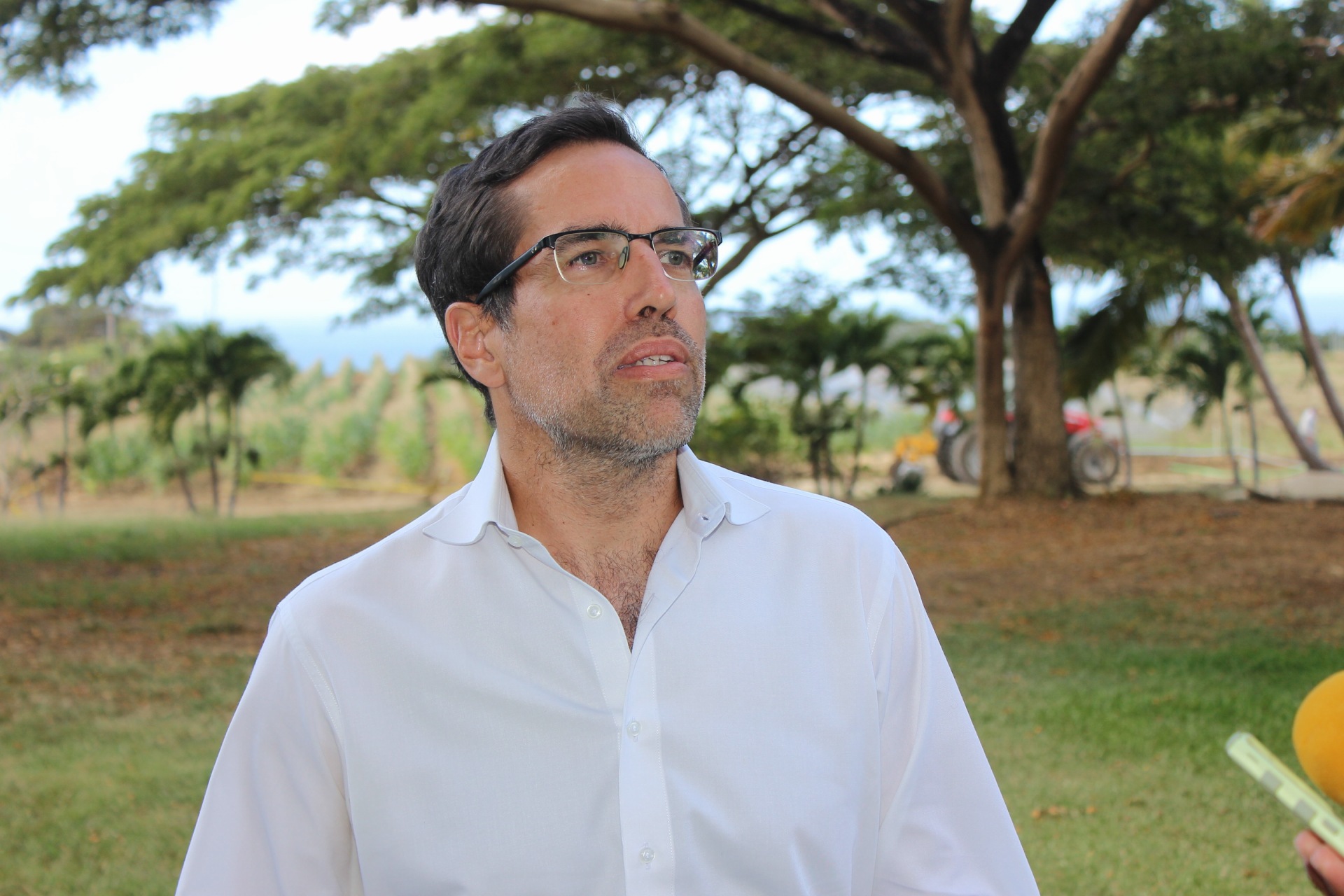by Marlon Madden
Barbados’ latest multi-million dollar investor in the agriculture sector has identified new talent acquisition as a major challenge.
In addition, owner of Haymans Farm in St Peter, Charles Gagnon, said it was about time that residents and authorities take the issue of littering and illegal dumping more seriously, especially if Barbados wanted to pride itself as an “upscale” tourism destination.
Gagnon’s concern came following the clearing of over 400 acres of plantation land which he purchased last year to carry out a wide-scale farming project, an investment that is estimated to be over $10 million.
He told Today’s BUSINESS he was able to remove some 50 truckloads of garbage from the sprawling land space, which included several household items.
Insisting that something should be done about illegal dumping and littering, Gagnon said “there needs to be more than lip service to this, there needs to be action”.
“Since we have purchased the property I saw some freshly dumped garbage and we are like 10 minutes way from the official dump . . . it is unfortunate. I think mentality has to change.
“I know there are fines here for littering here but you need to catch the person. You would need to have a policeman every 200 meters and that is impossible,” he said, adding that while praedial larceny was an issue he was “more upset with littering”.
“I am really disappointed that people are throwing so much out their car windows and I find that if you are a country that is built on tourism among other things, and you want to attract upscale tourism you don’t want to have litter all over the place.
“So I think larceny is an issue but littering is something that doesn’t put food on your table and it can really be avoided. We pay a lot of people to pick it up. I would rather have the people who pick up the litter to come and work at the farm,” he said.
The businessman told Today’s BUSINESS that recruiting farmers over the past few months has proven to be a challenge, and he believed it stemmed from people considering farming a demeaning task.
“One of the challenges I have had is that it has not been that simple to hire people to work on the farm. It looks like people here are not too enthused about working on farms. That is a little unfortunate. We have a lot more success in recruiting people for our office jobs than for the farm jobs,” he stated.
“I think that farming was put down too much. I think that people who are involved in farming should get better consideration from the population. I think it would help. There are people who truly love farming but they need to be motivated. If the community looks down on them as being in demeaning jobs that is not good,” he said.
Gagnon, a trained lawyer and founder of the Amphora Financial Group, said he decided to enter the agriculture space simply because he wanted to help Barbados reduce its food import bill by offering a wider variety of fruits and vegetables, and drive down costs.
While the majority of the farm will be used for the production of hay, Gagnon said he will be experimenting with some tropical fruits and vegetables that are not yet grown here to see how well they do so they can be introduced into the local market.
He is also considering solar power generation and said at some point he may also get involved in marijuana production as Barbados builds out its medical cannabis industry.
Gagnon’s wish is that Barbados produces more of the food it consumes at more affordable rates. Also, he wants authorities to incentivize those in the industry and encourage farmers to set up their own source of water supply “such as irrigation ponds”.
“Also, don’t try to tax them too heavily. There is already a rebate system for land tax here which is a very good culture,” he said.
Additionally, Gagnon told Today’s BUSINESS that he believed if the country was able to eliminate the importation of fruits and vegetables that grow well in Barbados “it would be a huge leap forward”.
“I think it would be good if the government would encourage locally grown food first, not at a higher price but basically putting the onus on people who want to import to show that there is no locally grown equivalent within the same price range – show to me that you can import much cheaper or that there is nothing locally grown – I think if this was a requirement it would really help the local agriculture here” he explained.




